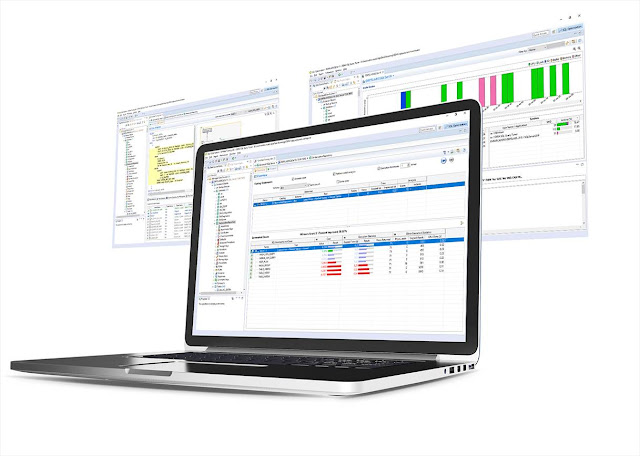SQL Diagnostic Manager: Streamlining Database Performance Optimization
In today's digital age, where data is the lifeblood of organizations, ensuring optimal performance of databases is crucial. As databases grow in complexity and scale, monitoring and managing their performance becomes increasingly challenging. This is where SQL Diagnostic Manager steps in as a comprehensive solution for database administrators (DBAs) to proactively monitor, diagnose, and optimize the performance of SQL Server databases.
Understanding SQL Diagnostic Manager:
SQL Diagnostic Manager, developed by IDERA, is a robust and feature-rich software tool designed to simplify the management of SQL Server environments. It provides DBAs with a centralized platform to monitor the health and performance of their SQL Server instances, enabling them to identify and resolve issues before they escalate into critical problems.
Key Features and Functionality:
1. Performance Monitoring: SQL Diagnostic Manager continuously monitors the performance of SQL Server instances, capturing and analyzing key performance metrics. It provides real-time and historical data, allowing DBAs to identify performance bottlenecks, resource utilization patterns, and potential areas of concern.
2. Alerting and Notification: The software includes a flexible and customizable alerting system that notifies DBAs of critical performance issues. It supports various notification methods such as email, SMS, or SNMP traps, ensuring that administrators can respond promptly to potential problems.
3. Query Monitoring and Tuning: SQL Diagnostic Manager provides comprehensive query monitoring capabilities, allowing DBAs to identify and optimize poorly performing queries. It captures and analyzes query execution plans, identifies long-running queries, and suggests performance improvements, helping to optimize overall database performance.
4. Capacity Planning: By analyzing historical performance data, SQL Diagnostic Manager enables DBAs to forecast future resource requirements and plan for capacity upgrades. It provides insights into resource consumption trends, helping organizations make informed decisions about hardware and infrastructure investments.
5. Centralized Management: With SQL Diagnostic Manager's centralized management console, DBAs can efficiently manage multiple SQL Server instances from a single interface. They can monitor and diagnose databases across different environments, making it easier to identify and resolve issues without switching between multiple tools.
Benefits of SQL Diagnostic Manager: 1. Proactive Performance Management: By continuously monitoring SQL Server instances, SQL Diagnostic Manager empowers DBAs to detect and address performance issues before they impact end-users. It helps organizations maintain high database performance and minimize downtime.
2. Enhanced Troubleshooting: The software provides detailed performance metrics and diagnostics, enabling DBAs to quickly pinpoint the root cause of performance problems. This saves time and effort in troubleshooting and resolving issues, resulting in improved overall productivity.
3. Optimized Resource Utilization: SQL Diagnostic Manager's query monitoring and tuning capabilities assist in identifying and optimizing resource-intensive queries. By fine-tuning query performance, organizations can reduce server load, improve response times, and maximize the utilization of hardware resources.
4. Streamlined Capacity Planning: The capacity planning features of SQL Diagnostic Manager enable organizations to make informed decisions about infrastructure investments. By accurately forecasting resource requirements, DBAs can ensure adequate scalability and avoid potential performance bottlenecks.
Conclusion:
SQL Diagnostic Manager plays a vital role in simplifying the management and optimization of SQL Server databases. With its comprehensive performance monitoring, alerting, query tuning, and capacity planning capabilities, the software empowers DBAs to proactively manage and optimize database performance. By leveraging SQL Diagnostic Manager, organizations can ensure smooth operations, minimize downtime, and deliver efficient and reliable data services to support their business goals.

